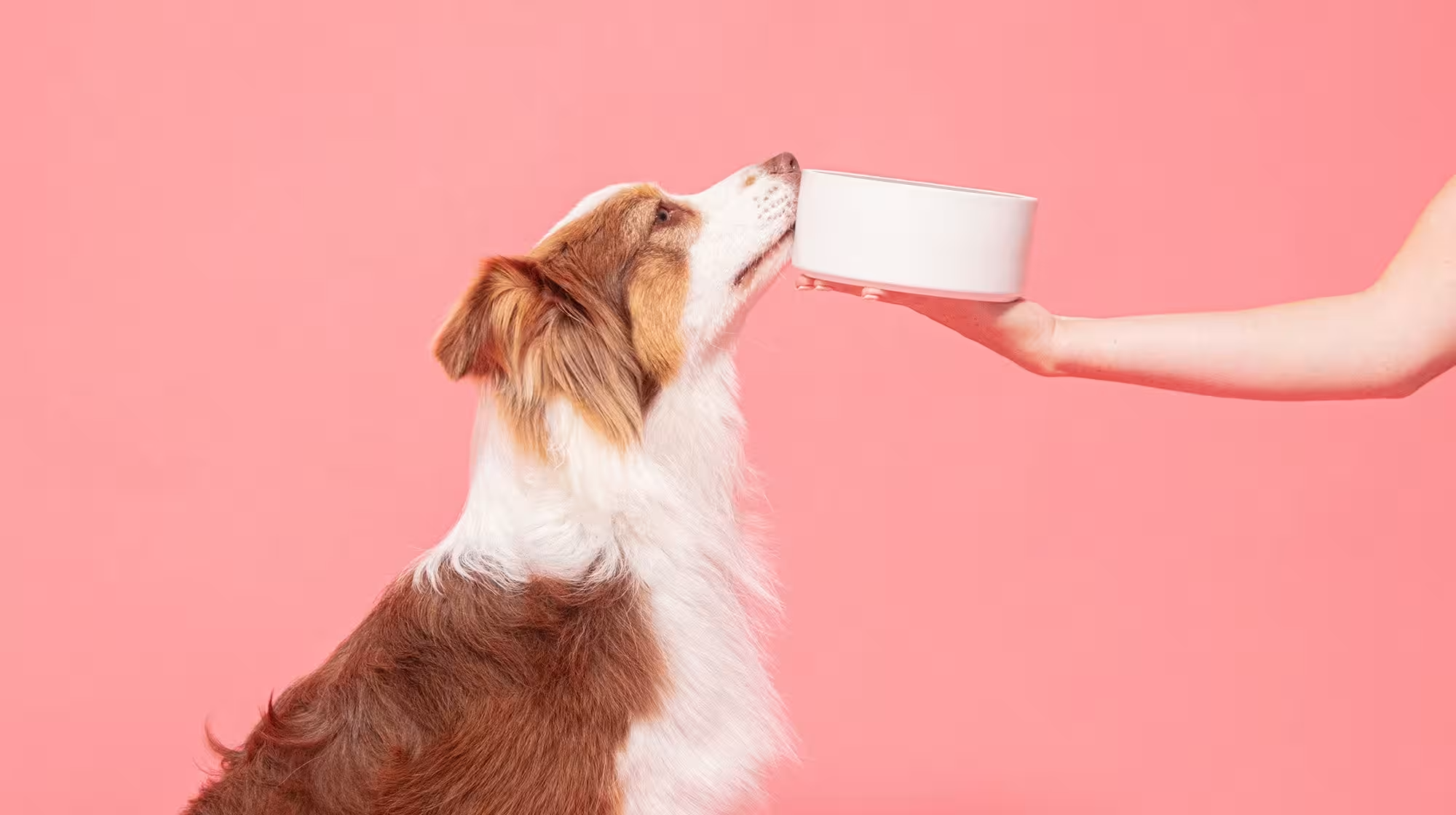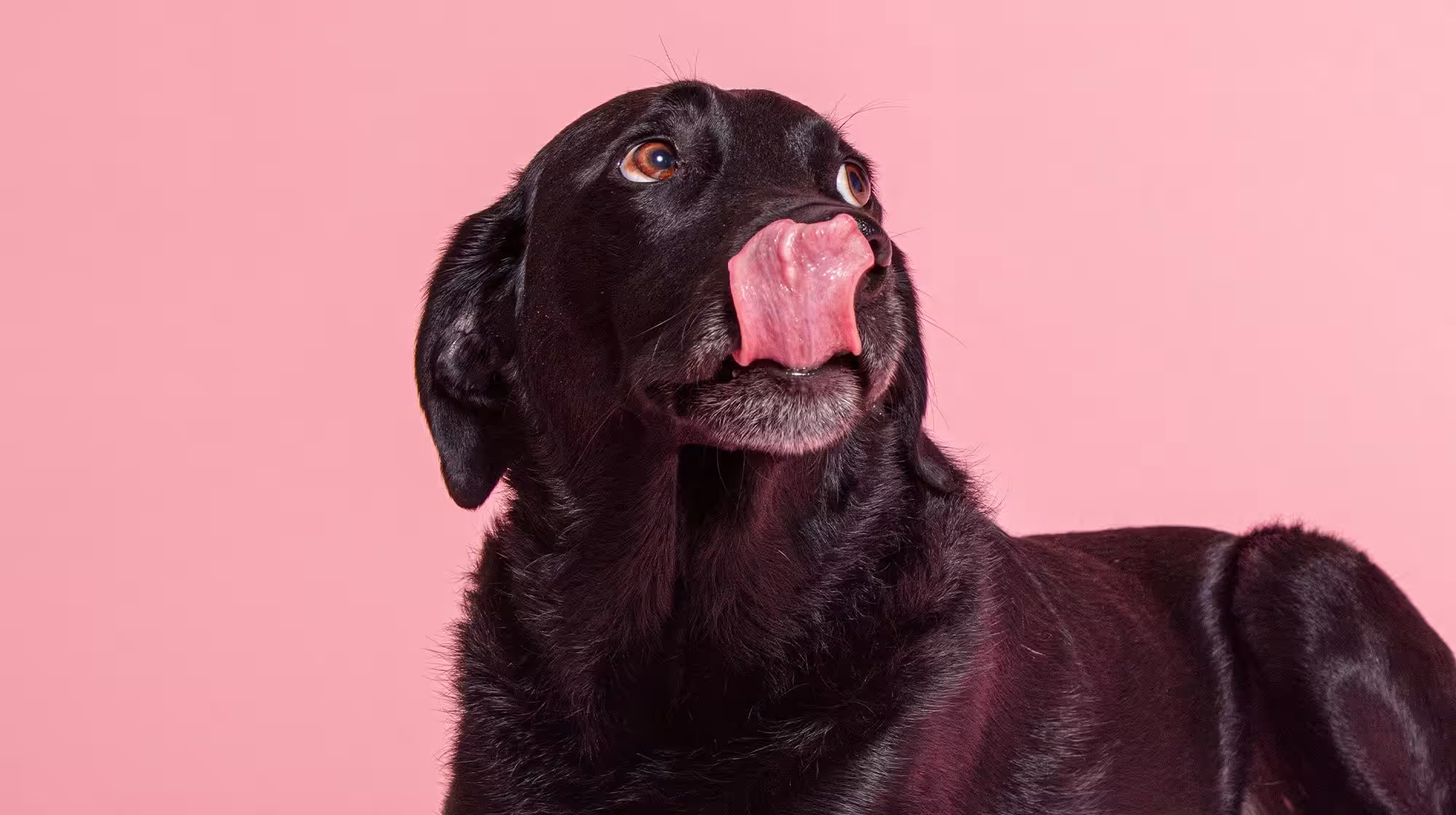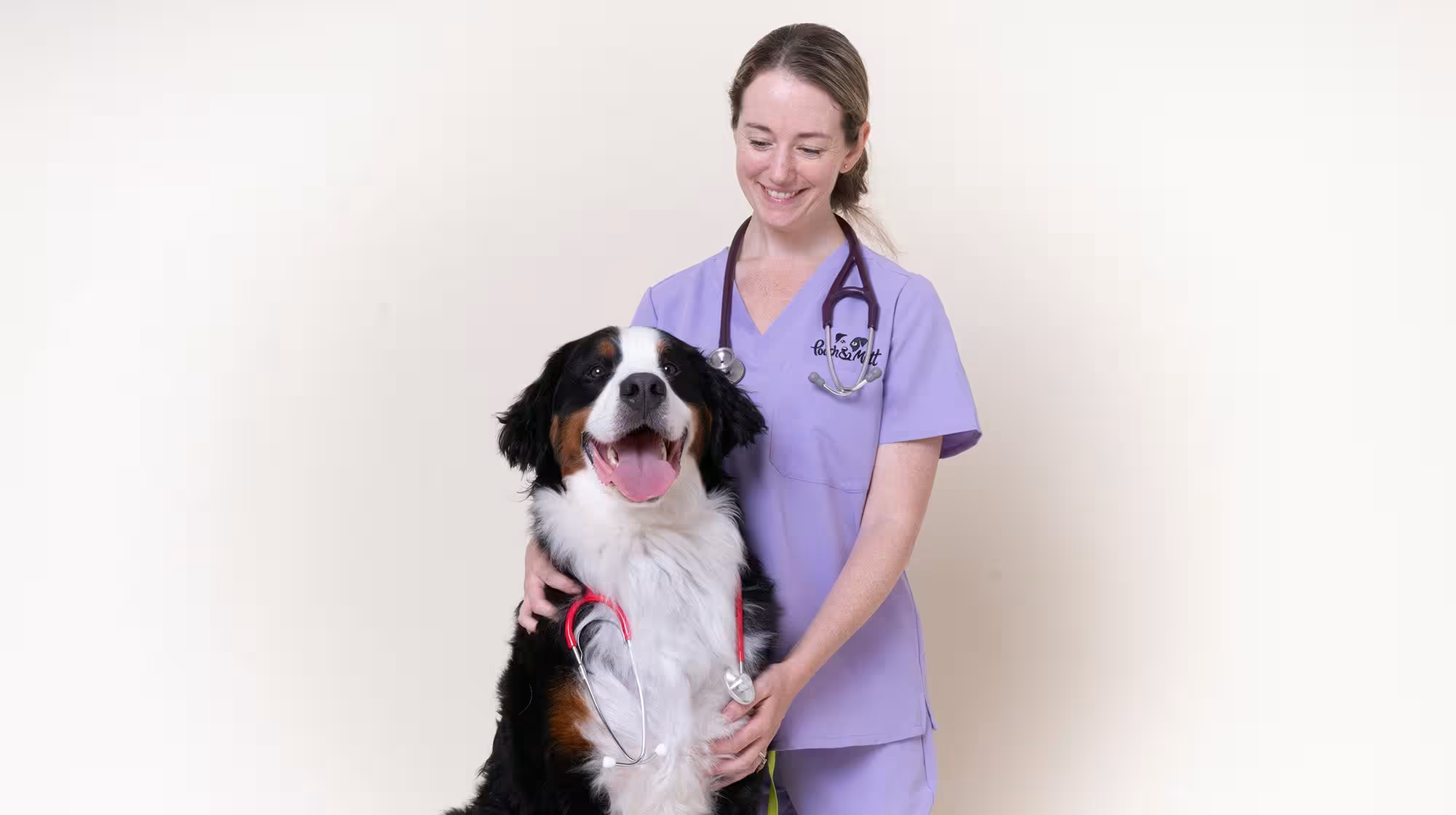Dogs usually follow their owners around for one simple reason: they love you!
And most of the time, it’s nothing to worry about. Following you around like a shadow is in a dog’s nature; a sign of their deep sense of companionship. However, there are other reasons to why your dog is following you, and why some dogs seem to be clingier than others.
In this article, we’ll go into the range of reasons your pooch is always at your feet, and when that clinginess might lean over into separation anxiety.
When you’ve read this article, you’ll know the difference between healthy behaviour and when it could be time to chat to a vet for advice.
Reasons dogs follow their owners around
It’s in a dog’s nature to follow their favourite person around everywhere, from the lounge to the bedroom, and even to the toilet.
This stems from a few reasons, and the behaviour can vary from dog to dog. Here are more details as to why your dog follows you.
Your dog loves you
The most obvious reason is the sweetest: your dog loves you a lot! It’s normal to want to be close to the companion you love the most, and your pooch will stay directly by your side for as long as you allow it.
You are your dog’s source of food, care and protection
From a more practical perspective, you are very important to your dog’s survival - you provide protection, love and affection, you are their key to being outside, and you give them food.
As you consistently show care to them in this way, being with you is where they feel safest, and so they will always want to be in close proximity to you.

You provide positive reinforcement
From words of affirmation, physical touch and the odd tasty treat whilst they follow you around, your dog has learned if they stay at your heels, love and treats usually are on the horizon.
This means they’ll definitely keep doing it in the hope of more praise.
They’re curious, restless or bored
If you’ve been sitting or stationary for a long part of the day and your dog is somewhat bored or restless, they will follow you for mental stimulation, to get a change of scenery or to see what you’re up to.
If you’re going out into the kitchen, for instance, your dog will know there might be food involved, while if you go into the garden, they’re sure to follow you out there to get some fresh air.
It’s part of their routine
If you have the same, day to day routine, then your pooch will get to know this routine and will casually follow you.
Dogs thrive on routine, so following you as you carry out your usual daily activities will have them feeling secure and safe.
Nervousness or separation anxiety
Following you and being super close to you at all times could be due to nervousness in your dog.
Some dogs overly worry that if they let you out of sight, something might happen to you or you’ll leave them.
Though some level of nervousness is normal in dogs, if your dog seems distressed or they follow you frantically, it could point to separation anxiety.

They’re trying to tell you something
If your dog starts following you more than they usually do and want to get your attention, you should decipher what they’re trying to communicate.
Dogs might follow you more when it’s close to meal times or it’s time for a walk; they need to go outside for a wee or poop, or they might feel unwell.
Try to read your dog’s body language to see how you can help them.
They sense treats
If you’ve been eating something that smells great, have snacks or a pocket full of tasty healthy dog treats, they will be able to sense that with their acute sense of smell, and will follow you around until you give in!
Treats
Delicious treats that taste good & do good too – perfect for dogs of all ages. Looking for something puppy-friendly? Check out our puppy treats collection.
-

 from
fromCurrent price: £3.99
Lovestruck Lamb Postbiotic Meaty Treats -

 from
fromCurrent price: £3.99
Calming Postbiotic Meaty Treats -

 from
fromCurrent price: £3.99
Health & Digestion Postbiotic Fish Treats -

 from
fromCurrent price: £11.49
Dental Stick Bundle For Dogs -

 from
fromCurrent price: £10.49
Meaty Treats Taster Pack -

 from
fromCurrent price: £3.99
Calming Dental Sticks For Dogs -

 from
fromCurrent price: £3.99
Peanut Butter Dental Sticks For Dogs -

 from
fromCurrent price: £4.99
Long-Lasting Fish Hide Chews -

 from
fromCurrent price: £4.99
Calming Fish Hide Chews -

 from
fromCurrent price: £8.49
High Protein Beef Jerky -

 from
fromCurrent price: £9.50
Fish Chews Bundle -

 from
fromCurrent price: £3.99
Spirulina & Mint Dental Sticks For Dogs -

 from
fromCurrent price: £3.99
Cheddar Cheese Dental Sticks For Dogs -

 from
fromCurrent price: £3.99
Skin & Coat Postbiotic Meaty Treats -

 from
fromCurrent price: £3.99
Dental Postbiotic Meaty Treats -

 from
fromCurrent price: £3.99
Peanut Butter Postbiotic Nutty Treats -

 from
fromCurrent price: £3.99
Cheddar Cheese Postbiotic Treats -

 from
fromCurrent price: £7.50
Peanut Butter Bundle -

 from
fromCurrent price: £7.50
Cheddar Cheese Bundle
The science behind dogs and following their owners
Dogs acting like a shadow is a canine behavioural instinct backed by science and genetics.
Firstly, being close to their owner boosts a dog’s mood - cuddling, sitting up against you, licking and looking into your eyes actually releases oxytocin, the bonding hormone that increases trust (for the human, too!).
Secondly, following around the ‘alpha’ dog is a key survival instinct that comes from wolves travelling in packs. Your dog staying close to you means in their eyes, you are the leader.

Does my dog have separation anxiety?
There’s a fine line between your dog following you around in a healthy, calm way, and separation anxiety.
The latter means your pooch is distressed, and won’t let you out of their sight because they’re nervous and fearful of being alone without you.
Signs of separation anxiety in dogs
If your dog has separation anxiety, the shadow-like behaviour will be particularly intense, and often accompanied by other signs of distress:
Take note if your dog follows you everywher e, especially if they whine and scratch at the door of a room if you close it on them (such as the bathroom door if you go to the toilet). You will feel their eyes on you constantly, as they are always pre-empting you getting up or moving - this can feel like a lot of pressure!
A dog with separation anxiety may have poor boundaries, meaning they are often climbing onto your body rather than just next to you or near you; and they may lick your hands and feet to the point of it being unpleasant or distracting.
Other signs of distress could be peeing in the house, drooling, trembling, crying or barking a lot, or showing immediate fear at any sign you could be leaving (when you grab your bag, shoes or keys, for instance).
They destroy things when they’re alone, as they’re so worked up by your absence they need to find some release.
They show overwhelming relief every time you return home or let them back into a room, beyond the usual joyfulness - even crying and howling at the sight of you.
How to handle my dog’s separation anxiety
If your dog’s shadow-like behaviour is accompanied by the above signs, it may be time to try to encourage independence in your nervous pooch.
This can start with small things, such as leaving them alone for short periods of time (five minute outings).
You could also expose them to ‘triggers’ like the sound of your keys or putting your shoes on without actually going anywhere, so that they don’t link these actions with being left by themselves.
Giving your dog calming dog treats or long-lasting chews , puzzles or a special toy each time you go out can also help - as they will come to associate your leaving with these pleasant distractions. Here are some more tips for dealing with separation anxiety in your dog .
When to get in touch with a vet
If your dog’s separation anxiety doesn’t improve with repeated attempts to boost their independence, it could be worth getting in touch with a vet or a trainer.
They can offer you support and guidance on separation anxiety in dogs, decide if your pooch could benefit from medication or treatment, or recommend a pet behavioural therapist.
FAQs
What dog breeds are naturally clingy?
Though almost all dogs love to be near their owners, there are some dog breeds that are definitely known to be clingy!
These include highly loyal dogs such as Vizslas, Golden Retrievers, Labradors and Border Collies, and stereotypical ‘lap dogs’ like Chihuahuas, Shih Tzus, Maltese and Cavalier King Charles Spaniels.
Is it healthy for my dog to follow me everywhere?
It can be!
Dogs follow their owners around as an instinctual canine behaviour and because they love and trust you - however, if you feel they are following you out of nervousness or anxiety, it could be a sign of separation anxiety.
If your pooch seems on edge, cries when you close the door on them and can’t stand being alone without you, it could be worth having a chat with your vet for advice.
Why does my dog follow me to the toilet?
Sounds like you have a particularly clingy dog who loves to be close to you!
Lots of dogs follow their owners from room to room, and even to the toilet - but if they find it difficult to be without you when you close the bathroom door (crying, scratching, howling), then it could be a sign of separation anxiety.
If you’re looking for ways to soothe or distract your dog, try our Probiotic Meaty Treats , infused with meaty flavours and gut-boosting probiotics; or our natural and Long-Lasting Fish Hide Chews for a safe and satisfying chew session.




